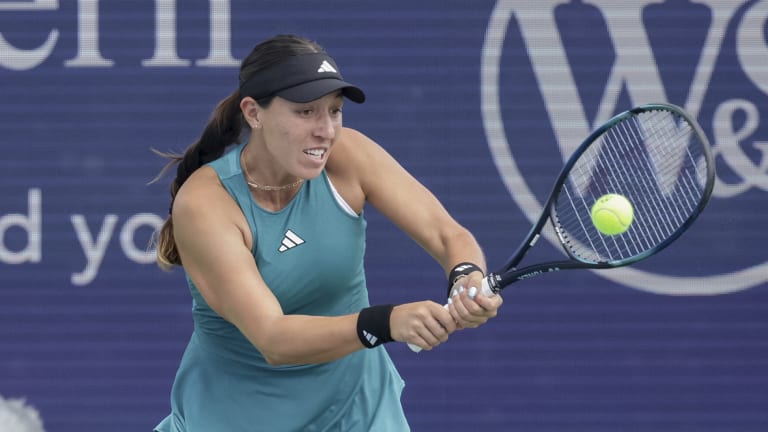Cincinnati, USA
Even a misbehaving frame couldn’t stop Jessica Pegula from upping her win streak
By Aug 16, 2023Cincinnati, USA
“Tennis is learning”: The education of—and by—Coco Gauff continues in Cincinnati
By Aug 21, 2023Cincinnati, USA
In Novak Djokovic and Carlos Alcaraz's second classic in as many months, the legend, rather than the phenom, had the final word
By Aug 21, 2023Cincinnati, USA
Novak Djokovic saves championship point in thrilling Cincinnati final win over Carlos Alcaraz
By Aug 21, 2023Cincinnati, USA
'This is what everybody wanted': Carlos Alcaraz and Novak Djokovic set Cincinnati showdown
By Aug 20, 2023Cincinnati, USA
Carlos Alcaraz saves match point, rallies past Hubert Hurkacz for spot in Cincinnati final
By Aug 19, 2023Cincinnati, USA
“Warrior” Coco Gauff finally solves Iga Swiatek riddle with right balance of attack and defense
By Aug 19, 2023Cincinnati, USA
Iga Swiatek to meet Coco Gauff in Western & Southern Open semifinals
By Aug 19, 2023Cincinnati, USA
Aryna Sabalenka steadies, scores bittersweet revenge over Ons Jabeur in Cincinnati
By Aug 19, 2023Cincinnati, USA
Carlos Alcaraz has looked almost human in Cincinnati—how long can he live on the edge?
By Aug 18, 2023Cincinnati, USA
Even a misbehaving frame couldn’t stop Jessica Pegula from upping her win streak
After advancing in Cincinnati Wednesday, how far can the Montreal champ go, in what may be the biggest month of her career so far?
Published Aug 16, 2023
Advertising

Pegula has won eight of first nine matches during the North American summer hard-court swing.
© AP